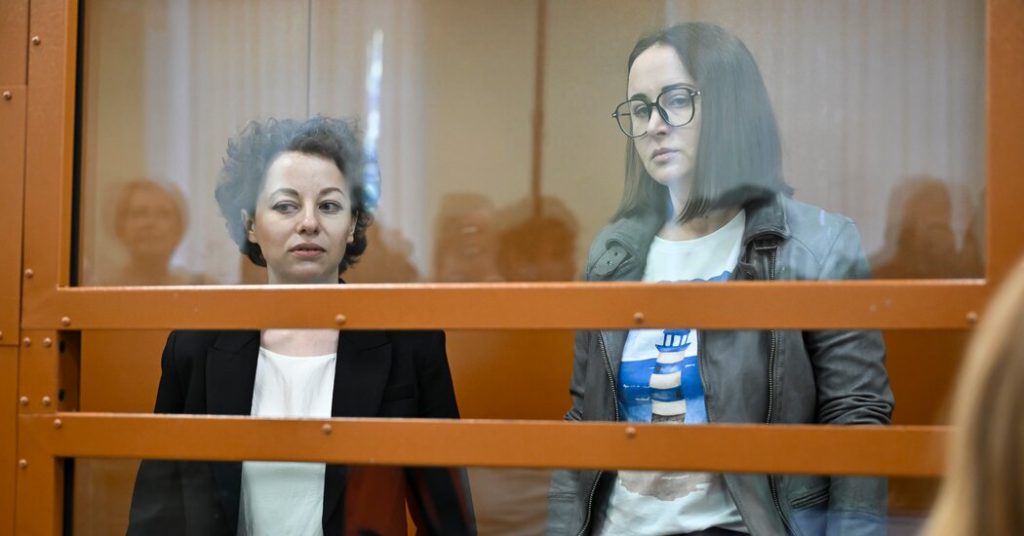Ms. Berkovich, the director, comes from a family of advocates with a strong human rights background. She was arrested and jailed for 11 days after holding a poster with the inscription “No to War” and allegedly disobeying police officers on the first day of Russia’s full-scale invasion. She has also written antiwar poetry. Ms. Petriychuk, a playwright, became well-known in the Moscow theater world in 2018, winning recognition and awards. Both women have repeatedly asked for their detention to be changed to house arrest. Ms. Berkovich is a mother to two adopted teenage daughters, whom she met at a summer camp for orphans.
Ksenia Sorokina, a friend of Ms. Berkovich, expressed concern for the well-being of their two daughters, who are struggling with the repeated loss of parental figures. Ms. Berkovich and Ms. Petriychuk were added to Russia’s official list of “terrorists and extremists” just before their trial began in April, which led to their bank accounts being frozen. The list includes various groups and individuals, ranging from the Islamic State and Al Qaeda to political opposition figures like the late Aleksei A. Navalny and Facebook’s parent company, Meta. Mr. Dyurenkov, a former art director of the Moscow festival, predicted more prosecutions of this kind, indicating the repressive nature of the system.
The involvement of Ms. Berkovich’s family in activism and advocacy may have influenced her own actions, such as holding the “No to War” poster and writing antiwar poetry. Despite facing challenges and adversity, both women have continued to fight for justice and have asked for their detention to be changed to house arrest. Ms.Petriychuk’s scoliosis condition and Ms. Berkovich’s role as a mother to two adopted daughters add another layer of complexity to their situation, highlighting the personal toll of the legal proceedings and imprisonment.
The support of friends and allies, such as Ksenia Sorokina, has been crucial for Ms. Berkovich and Ms. Petriychuk during this difficult time. The concern for the well-being of their daughters and the impact of their detention on them adds an emotional dimension to the story. The decision to add the women to the list of “terrorists and extremists” further complicates their situation, highlighting the challenges faced by those who speak out against the government or advocate for change in repressive systems.
The broader implications of the women’s prosecution, as noted by Mr. Dyurenkov, suggest a growing trend of similar cases in Russia. The repressive nature of the system is highlighted by the targeting of individuals like Ms. Berkovich and Ms. Petriychuk, who are engaged in creative and advocacy work. The impact of their imprisonment and the freezing of their bank accounts extends beyond the personal to the professional, affecting their ability to continue their work and support themselves.
In conclusion, the story of Ms. Berkovich and Ms. Petriychuk sheds light on the challenges faced by activists and artists in repressive systems like Russia. Their arrest and prosecution, as well as the freezing of their bank accounts, have personal, emotional, and professional implications. The support of friends and allies, as well as the broader implications of their case, underscore the importance of advocating for justice and freedom of expression in the face of adversity.


